We do everything in-house and utilize cutting-edge technology to lower cost, improve patient experience, and deliver superior results.
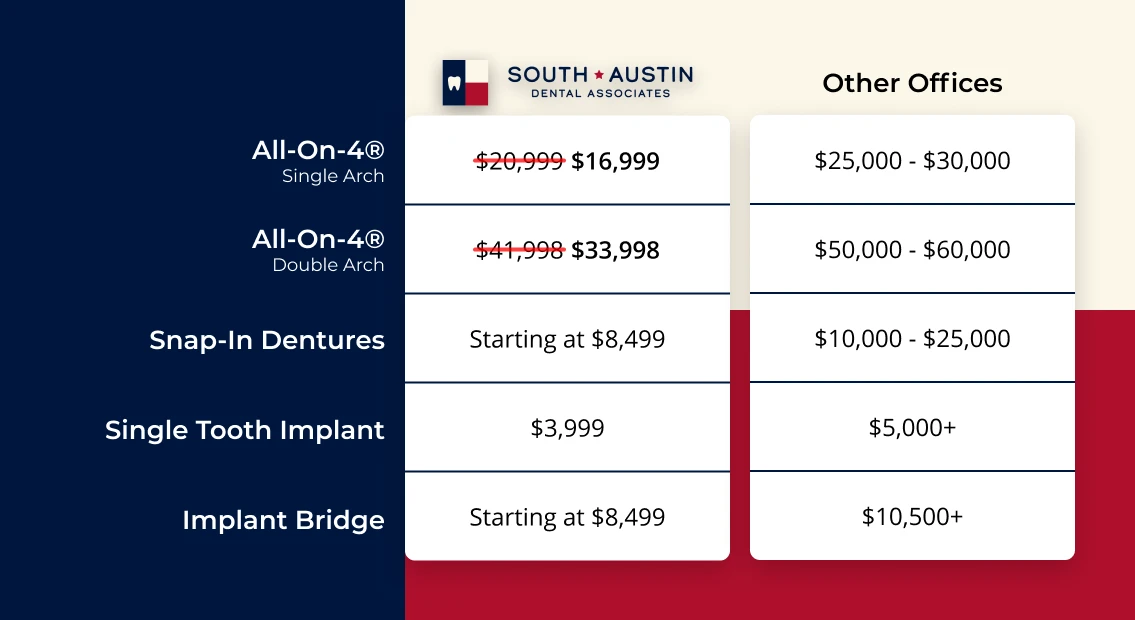
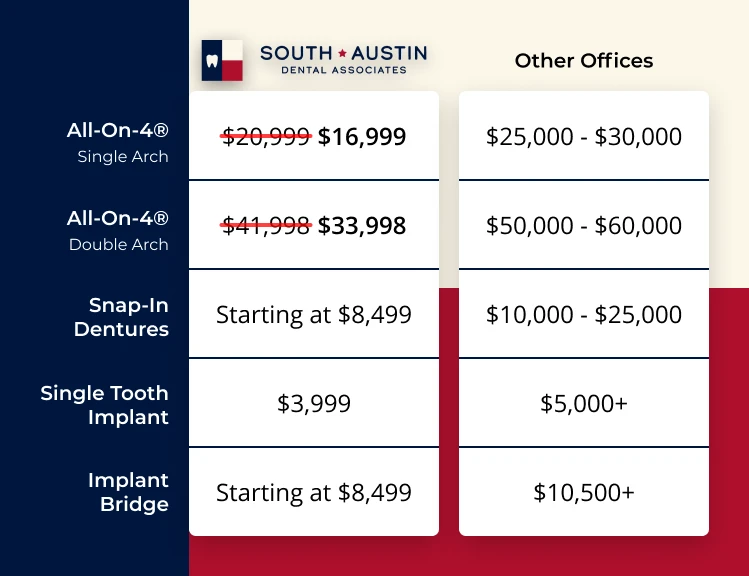

“They put me at ease with everything. It was better than what I thought it was going to be!”

“They gave me back my confidence and gave me my life back. Now with dental implants, I can bite an apple!”

“After the procedure I definitely got a lot more confident in myself!”

“It’s the greatest thing that I did – I love my teeth! I can go eat a prime rib!”

“I never smiled at all because of my bad teeth. Now I can’t stop smiling with my new teeth!”

“This is something that is life-changing.”

“It’s a no-brainer.”

“This experience is awesome and they are a family.”

“It’s well worth it in the long run.”

“I’m especially thrilled that I can eat again. I can eat whatever I want!”

Same-day smiles from actual patients




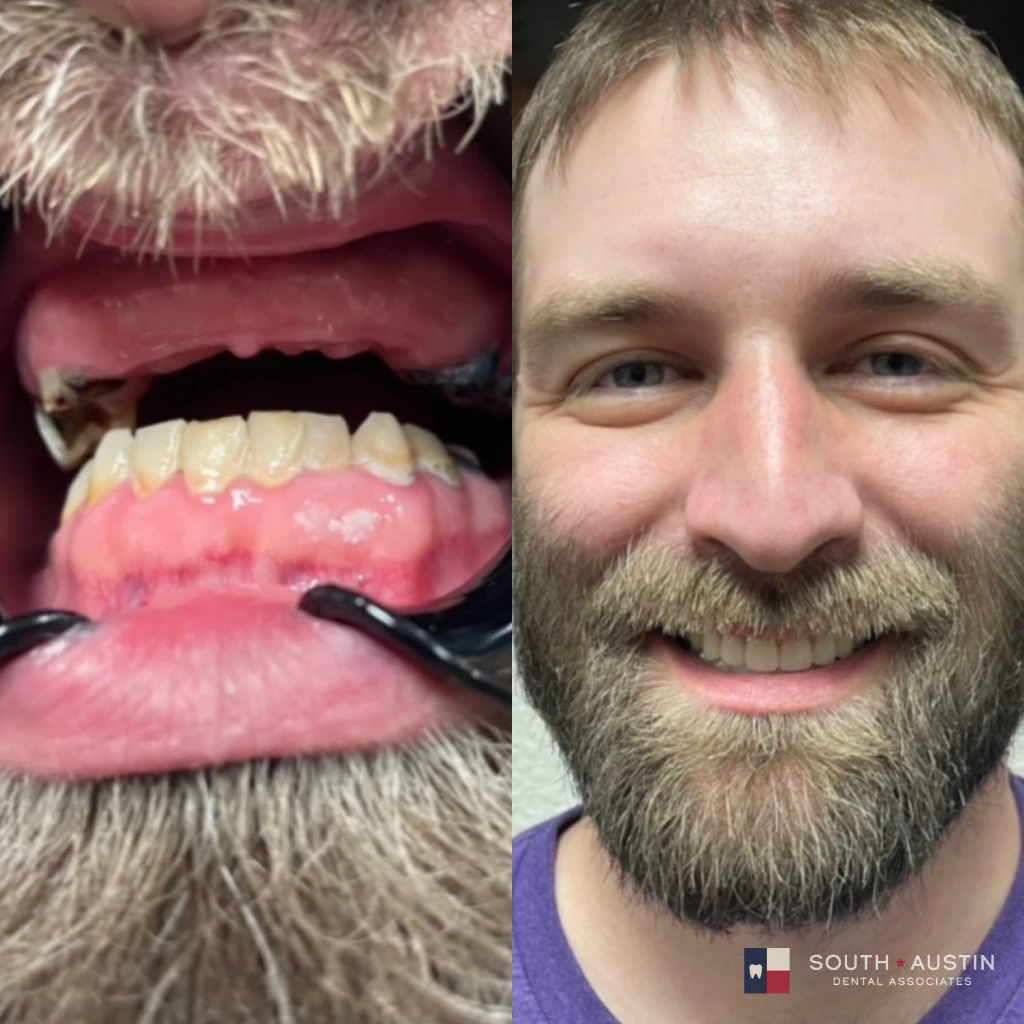
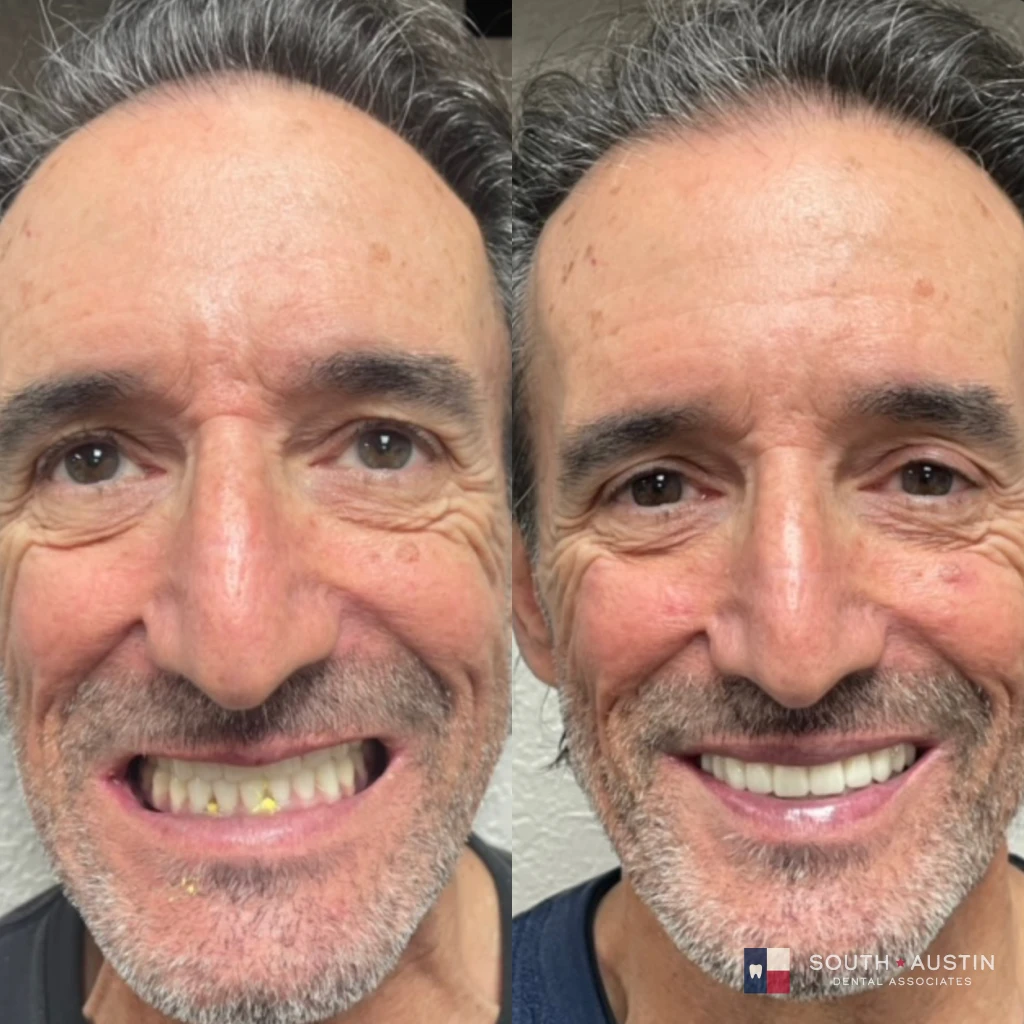
Dental Implants bring you as close to growing new teeth as possible. Expertly placed in the same bone that once supported teeth, you’ll enjoy the strength and function of a natural tooth. Modern dental implants produce a result so life-like, you may forget they aren’t your natural teeth. The stability and sense of confidence you develop with implants will leave you smiling.
If you are considering choosing a tooth implant to restore your smile, the first place to start is an evaluation with Dr. Matthysse. He will perform a thorough examination and take x-rays of your teeth and jawbone to ensure that your bone can successfully support a dental implant.
Our team will help you learn how you can fit implant dentistry into your budget and guide you through the entire process at our dental office. Contact South Austin Dental Associates today at (512) 444-1133 to arrange a time for your dental implant exam.
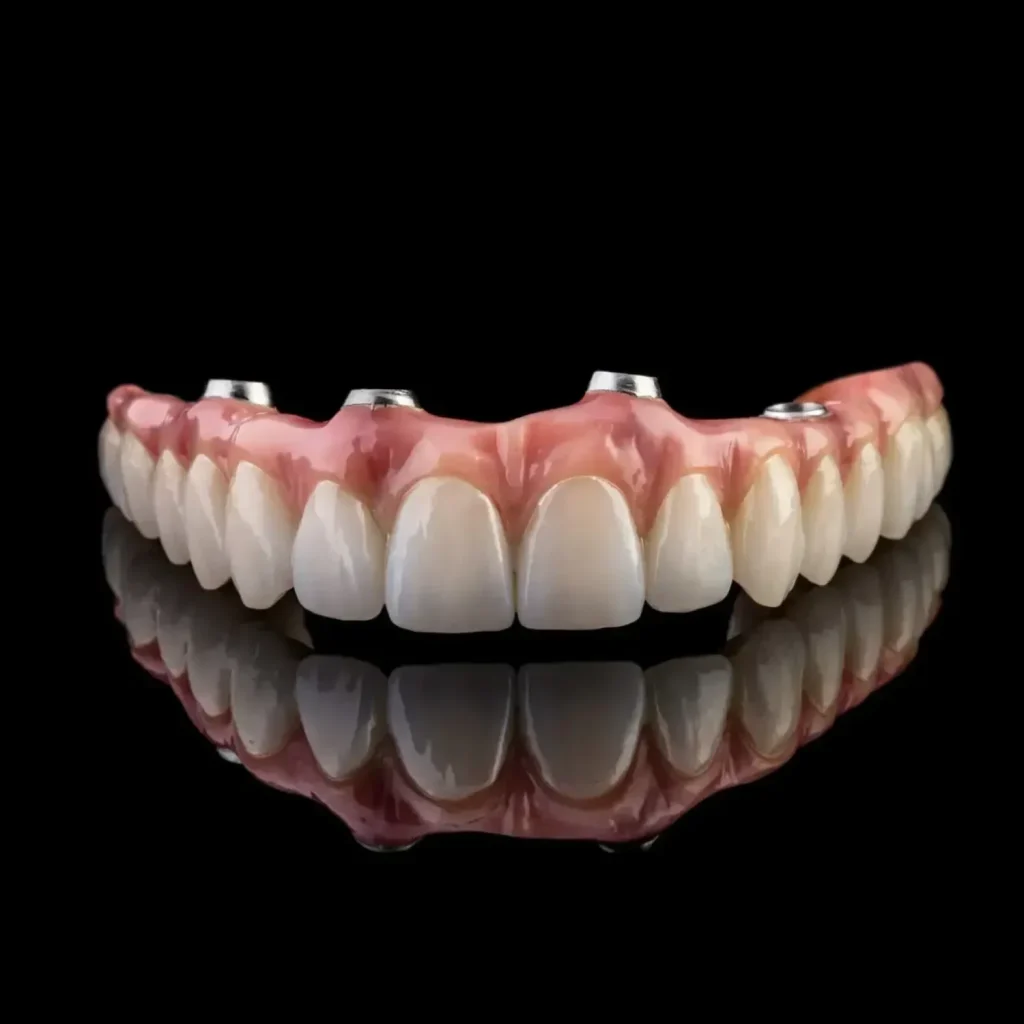
Permanent, All-on-4 implants can help make your dentures more stable so you can function better and have increased confidence. Permanent-teeth-in-a-day uses 4-6 angled implants to place an entire arch of non-removable teeth in just one day!
Due to the advancements made in dental implant technology, permanent-teeth-in-a-day is more affordable than ever. And unlike many other teeth replacement options utilizing implants, with permanent teeth-in-a-day you leave that same day with fixed teeth.
Single Arch
Double Arch
All-Inclusive Bundle
Price includes extractions, implants, bone grafting, IV sedation, and fixed hybrid ceramic resin teeth
Additional Per Arch
$4,000 off each arch now through DATE
Full Zirconia final bridge(s) – most durable and ideal aesthetics.
Lifetime Warranty on Zirconia restorations for patients who follow regular 6-month cleanings
Per Arch
All-Inclusive Bundle
Price includes extractions, 4-6 implants per arch, bone grafting, fixed temporary teeth, and fixed final Zirconia teeth (most durable and ideal aesthetics)
Permanent, non-removable full arch of teeth
Multiple sedation options available
Lifetime Warranty on Zirconia restorations for patients who follow regular 6-month cleanings
If you begin treatment before DATE, we are offering up to $4,000 off per arch on All-On-4 Dental Implants with Zirconia. Take advantage of our limited-time pricing today!
*Limited to the first 10 patients who accept treatment.
We are in-network with a variety of insurance providers and will work with you to maximize your benefits before the end of the year. Let us help you reduce your out-of-pocket costs as much as possible!
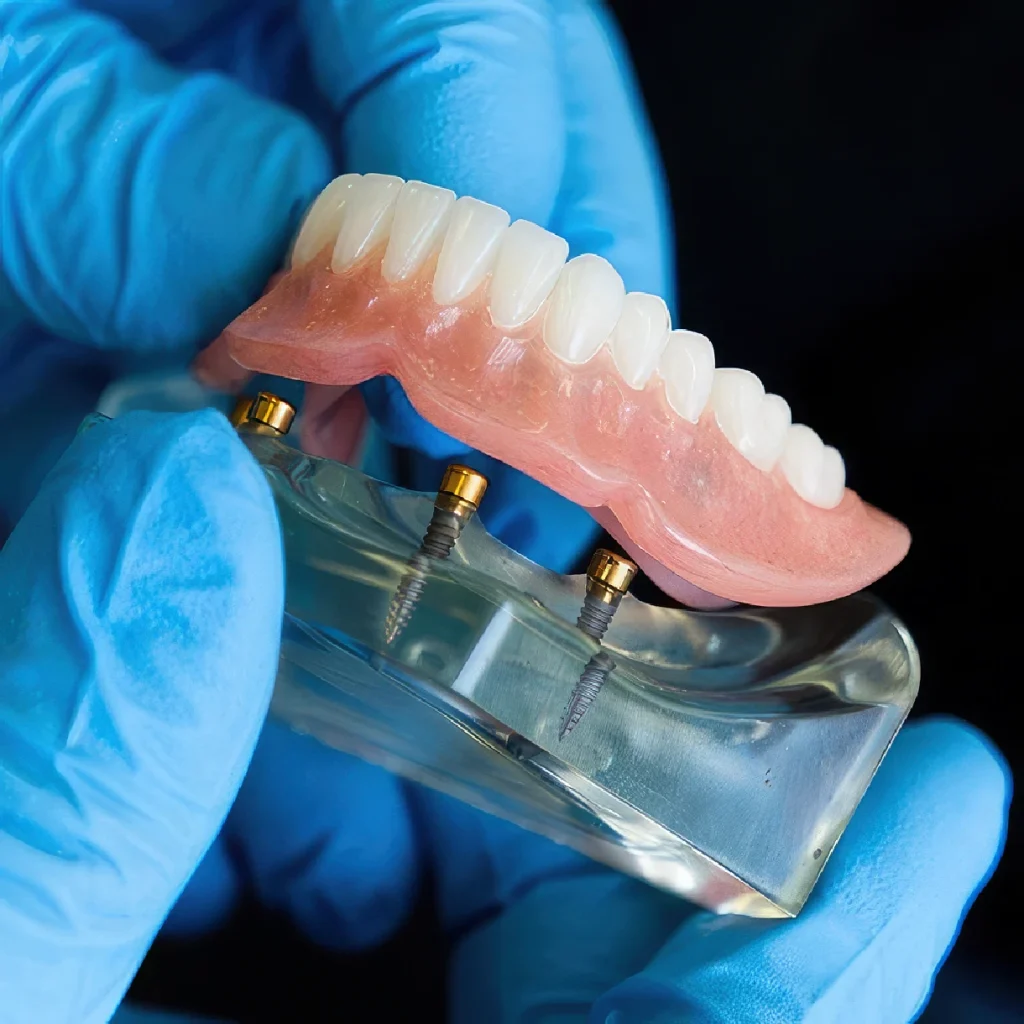
Snap-In Dentures (also called Click-In Dentures or Overdentures) are a cost-effective alternative to traditional dentures that utilizes strategically placed implants for added retention.
Snap-In Dentures are removable by the patient for easy cleaning, but offer superior stability when compared to conventional dentures.
Dental implants can eliminate the need for the palate portion of top dentures (the part that covers the roof of the mouth), thus helping to reduce gagging sensations and diminished ability to taste food. Snap-In Dentures can also make a loose lower denture more stable, keeping it from floating around in your mouth.
Snap-In Dentures can help to increase your confidence, comfort, and function, thereby greatly increasing your quality of life.
Lower
Replaces all of your bottom teeth with a secure denture held in by 3 dental implants.
This price includes dental implants, abutments, snaps, and the snap-in denture. It does not include the price of extraction.
Upper OR Lower
Replaces all of your top OR bottom teeth with a secure denture held in by 4 dental implants.
This price includes dental implants, abutments, snaps, and the snap-in denture. It does not include the price of extraction.
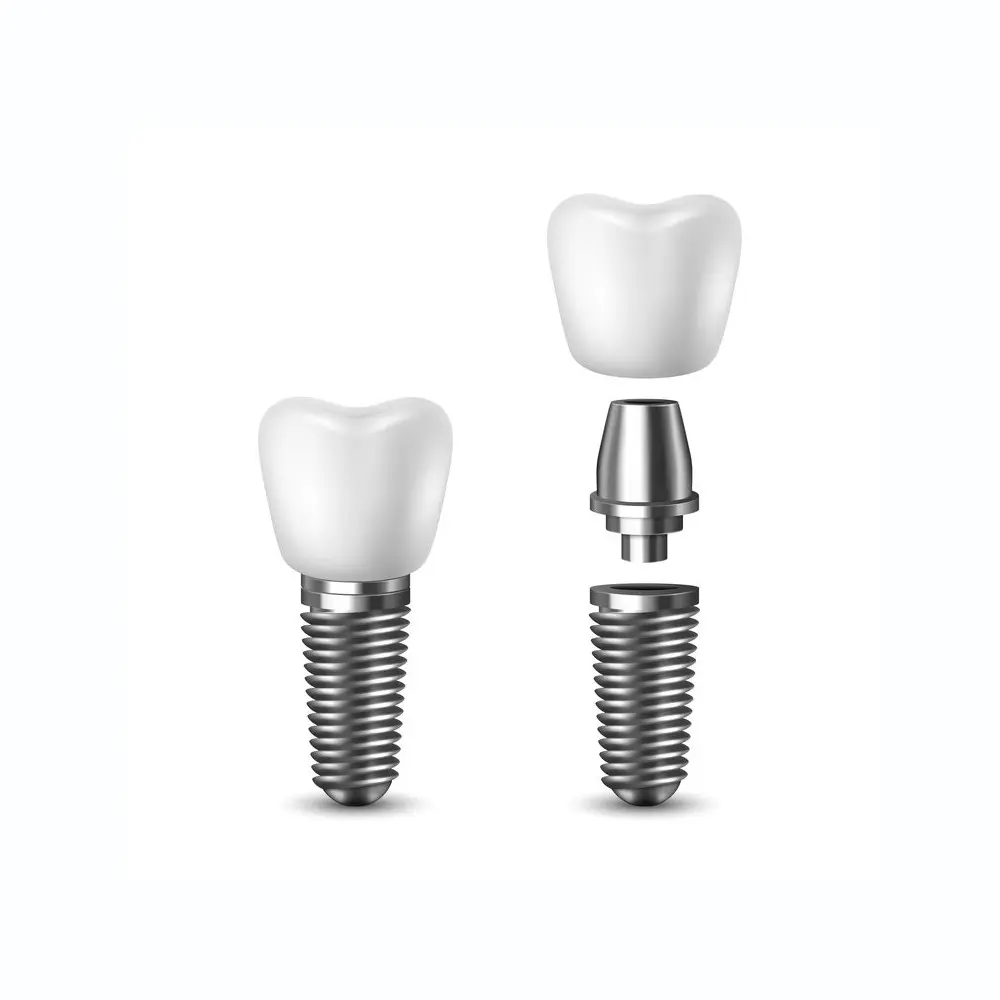
Dental implant restorations are prosthetic teeth that are designed to attach to your implant, and restore your smile. For Single Tooth Implants, a dental crown is usually used. This crown functions just like a real tooth and is crafted to fit into your smile perfectly. In conjunction with the titanium implant, your new tooth will function just like your natural tooth did.
Single Tooth Implants can be treated just like a natural tooth. Simply brush and floss your teeth normally, and your implant will remain healthy and strong for years to come. Dental implants typically last 30+ years with proper care.
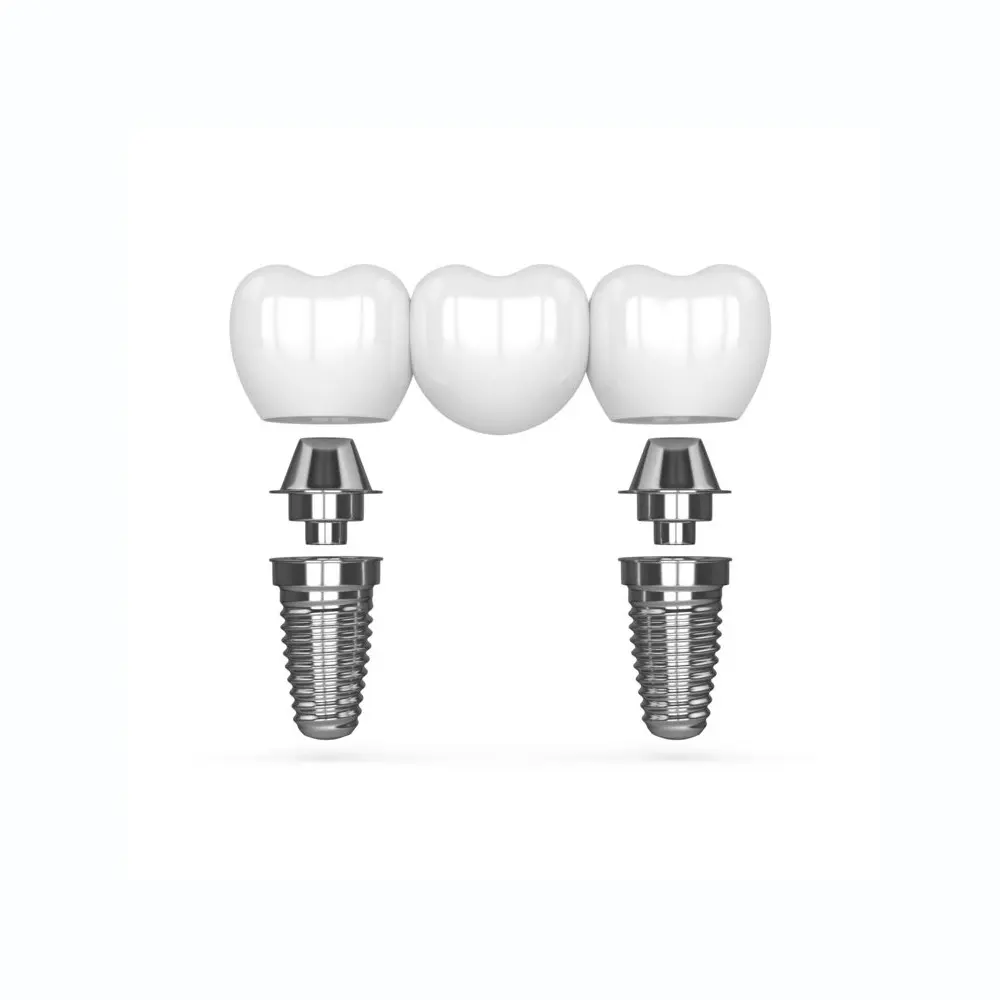
A Multi-Tooth Implant Bridge is similar to a Single Tooth Implant, but is used to replace a series of failing or missing teeth. Two dental implant screws are placed into the jaw bone and a series of strong, custom teeth bridge the gap.
Replaces 1 tooth
Starting at
Includes the implant body, abutment, and crown
Replaces 3 teeth
Starting at
Includes 2 implant bodies, 2 abutments, and 3 unit bridge
More cost effective than placing 3 individual implants
Dental Implants are an important investment in yourself. Having the option to break this investment down into monthly payments can help make these life-changing services more accessible and easier to fit into your budget. We work with a variety of financing providers that offer payment plans to cover either all or part of your dental implant procedure. This is a great option for all patients, especially those who are on a fixed income. With these flexible financing options, you can enjoy the benefits of a healthy, beautiful smile without breaking the bank.
Contact us to learn more about our financing options and schedule your FREE Consultation with Dr. Matthysse today!
Dental implants are artificial tooth roots made of titanium that are surgically placed into the jawbone to support a replacement tooth or bridge. They are used as a permanent solution for missing teeth or teeth that need to be extracted.
Dental implants provide a durable, long-term solution for missing teeth, as they are designed to function and feel like natural teeth. They also help maintain the structure of the jawbone by preventing bone loss that can occur with missing teeth. Overall, dental implants can improve the appearance of the smile, restore chewing and speaking abilities, and enhance overall oral health.
There are a few options when it comes to dental implants, ranging in price, function, and how many teeth you are looking to replace.
The type of dental implant that’s best for you will depend on several factors, including the amount and location of healthy teeth you have, the amount and density of bone in your jaw, your overall oral health, and your personal preferences. Dr. Matthysse will go through your options and recommend the best type of dental implant for your specific needs after a thorough evaluation. To book a consultation, give us a call or schedule online today!
The cost of dental implants can vary depending on several factors, including the type of implant, the number of implants needed, and any preparation for the procedure, such as extractions. Because this is so case-by-case, we recommend that you schedule a consultation with Dr. Matthysse, and they will be happy to walk you through your options and pricing for each with no pressure.
Dental insurance coverage for dental implants can also vary depending on your specific insurance plan. Some plans may cover a portion of the cost of dental implants, while others may not cover the procedure at all. It’s important to check with your insurance provider to understand your coverage options for dental implants. In some cases, dental insurance may cover the cost of the restoration (the replacement tooth or bridge) that is attached to the implant, but not the implant itself.
Either way, at South Austin Dental Associates, we offer convenient financing options to help you fit the cost of dental implants into your budget.
Bone grafting is a procedure that involves adding bone tissue to the jawbone to increase its volume and density. This procedure is commonly used in dental implant surgery to help provide a stable foundation for the implant.
Bone grafting may be necessary for dental implants in cases where the patient has experienced bone loss in the jaw due to periodontal disease, injury, or other causes. Without sufficient bone volume and density, the implant may not be able to integrate properly with the jawbone, leading to implant failure.
In some cases, bone grafting may not be necessary for dental implants, depending on the amount of available bone in the jaw and the specific implant placement technique used. Dr. Matthysse will be able to determine whether bone grafting is necessary for your dental implant procedure during your initial consultation.
Dr. Matthysse will use an anesthetic so most patients report minimal pain or discomfort during and immediately after their dental implant procedure.
After the anesthetic wears off, it’s common to experience some minor discomfort, swelling, and bruising in the area around the implant. Dr. Matthysse may prescribe or recommend over-the-counter medication to help manage any discomfort as you recover.
It’s very important to follow all post-operative instructions, including any medication instructions and recommendations for oral hygiene and diet. Avoiding smoking and drinking alcohol can also help reduce discomfort and promote healing.
While dental implant surgery is generally well-tolerated, it’s important to discuss any concerns or questions with Dr. Matthysse prior to your procedure. They can provide detailed information about what to expect and work with you to develop a personalized treatment plan that meets your needs and minimizes any discomfort or pain.
We’re a little biased, but we firmly believe that Dr. Matthysse is the best dental implant specialist in the Austin area! But don’t take our word for it, read our reviews!
The most important thing is to find an experienced dental implant specialist that will discuss all of your options with you, without pressure, and let you make a decision that you’re comfortable with. At South Austin Dental Associates, we’ll work with you to customize a dental implant treatment plan that fits within your budget, and deliver results that will make you and your loved ones smile!
The first step is your consultation, but once you and Dr. Matthysse have agreed on a treatment plan, it’s certainly possible to have your dental implants placed in one appointment. This is known as “immediate loading” or “same-day implants.”
Not all patients are candidates for same-day implants, and the decision to place same-day implants will depend on several factors, including the condition of your jawbone and the complexity of your case. In general, patients who have good oral health, sufficient bone density and volume, and no major underlying medical conditions may be candidates for same-day implants.
Dr. Matthysse will conduct a thorough evaluation of your oral health and medical history to determine whether same-day implants are a viable option for you.
The healing time for dental implants can vary depending on several factors, including the number of implants placed, the condition of your jawbone, and your overall health. In general, it can take anywhere from several weeks to several months for dental implants to fully heal and fuse with the jawbone.
During the healing process, it’s important to follow all post-operative instructions, including proper oral hygiene practices and avoiding certain foods and activities that could interfere with healing. Dr. Matthysse will also schedule follow-up appointments to monitor your progress and ensure that the implants are healing properly.
Snap-in dentures, also known as implant-supported dentures, offer several advantages over traditional dentures, including:
While snap-in dentures may require a higher initial investment than traditional dentures, many patients find that the improved comfort, stability, and functionality are well worth the cost. Dr. Matthysse can help you determine whether snap-in dentures are a good option for your individual needs and preferences.
You may need dental implants if you have one or more missing teeth or if you are facing tooth extraction due to extensive decay or damage. Additionally, if you have traditional dentures or bridges that are uncomfortable, unstable, or otherwise unsatisfactory, dental implants may be a good option to consider.
Some signs that you may need dental implants include:
If you are experiencing any of these symptoms, please give us a call or book a consultation online to discuss your treatment options. Dr. Matthysse can evaluate your oral health and determine whether dental implants are a good option for you based on your individual needs, preferences, and overall health.